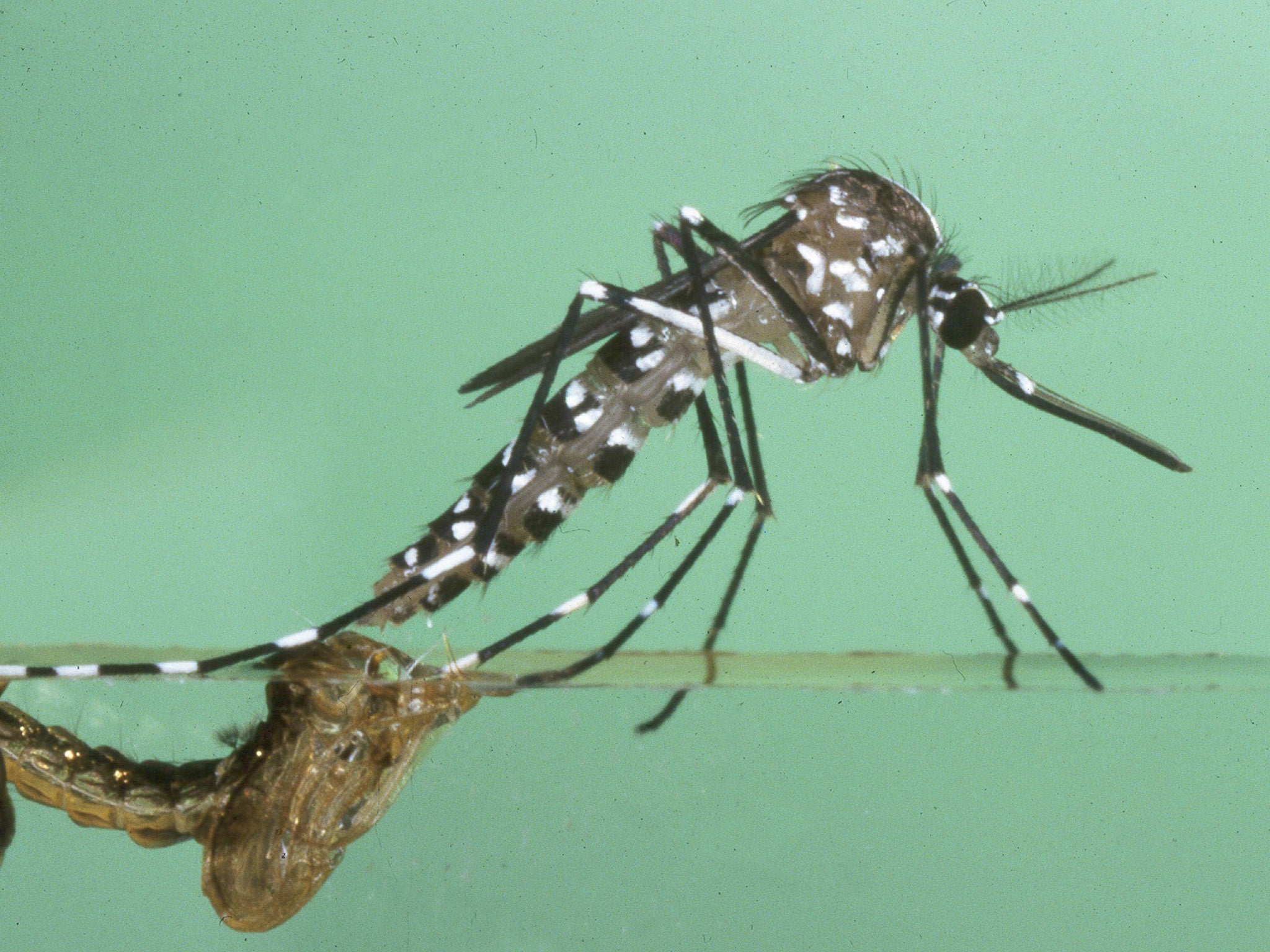Mosquitoes could bring deadly tropical diseases to the UK as climate change kicks in
Conditions are already warm enough for disease-carrying mosquitos to survive in the UK and they have already reached 25 European countries

Your support helps us to tell the story
From reproductive rights to climate change to Big Tech, The Independent is on the ground when the story is developing. Whether it's investigating the financials of Elon Musk's pro-Trump PAC or producing our latest documentary, 'The A Word', which shines a light on the American women fighting for reproductive rights, we know how important it is to parse out the facts from the messaging.
At such a critical moment in US history, we need reporters on the ground. Your donation allows us to keep sending journalists to speak to both sides of the story.
The Independent is trusted by Americans across the entire political spectrum. And unlike many other quality news outlets, we choose not to lock Americans out of our reporting and analysis with paywalls. We believe quality journalism should be available to everyone, paid for by those who can afford it.
Your support makes all the difference.Malaria, dengue fever and other deadly exotic diseases could become an established part of British life in a matter of decades, public health experts have warned.
The emergence of the illnesses is likely to be driven by climate change, which will make it easier for mosquitoes and other blood-sucking insects which transmit the diseases to become widespread in the UK.
Dengue fever, West Nile virus and chikungunya have already reached parts of Europe and malaria has re-established itself in Greece as tropical mosquitoes spread into new territories.
Asian tiger mosquitoes are among the insects invading Europe and are known to have transmitted dengue fever in France and Croatia, and chikungunya in Italy.
Conditions are already warm enough for the mosquito to survive in the UK and it has reached 25 European countries. The higher temperatures and increased rainfall predicted for the UK by climate change models could provide the mosquito with “ideal conditions”.
The UK has 34 species of mosquito and several are capable of transmitting malaria. One climate model suggests southern England will become warm enough by 2030 for the disease to be transmitted for up to four months of the year and another predicts suitable climatic conditions by 2080 for the disease to be transmitted for two months of the year as far north as southern Scotland. The effect on the spread of diseases by climate change is considered in a paper published in The Lancet Infectious Diseases journal by Dr Jolyon Medlock and Professor Steve Leach, from the emergency response department at Public Health England.
“There is little doubt that climate change will affect vector-borne disease risk,” they warned in the paper.
The authors said that while the climate is an important factor in the spread of diseases such as dengue fever and malaria, several other issues need to be considered, such as the availability of water for the mosquitoes to lay their eggs.
“We are not suggesting that climate change is the only or the main factor driving the increase in vector-borne diseases in the UK and Europe, but that it is one of many factors including socioeconomic development, urbanisation, widespread land-use change, migration, and globalisation that should be considered,” said Professor Leach.
The importation of used tyres is a recognised route for tropical mosquitoes to get into a country and Dr Medlock urged that “a better system to monitor imported used tyres, in which disease-carrying mosquitoes lay their eggs, needs planning”.
Mosquito-borne invasion: Tropical diseases in Europe
Chikungunya virus: Already 200 cases in Italy. Conditions expected to be suitable for transmission by mosquitoes for a month a year in London by 2041 and for three months in the South-east by 2071 because of predicted temperature rises.
Dengue virus: Has reached France and Croatia. The mosquito Aedes albopictus is one of the main carriers and conditions are already suitable for it in the UK. A 1C temperature rise, forecast by 2050, will extend by a fortnight the time the mosquito can live in the UK.
Malaria: Recently re-established in Greece. Several UK species are capable of transmitting it and one model suggests that by 2080 carriers could potentially transmit malaria for two months a year as far north as southern Scotland.
West Nile Virus: 700 cases in Europe including Italy, Serbia, Romania and Hungary. Culex modestus, one of the main mosquito carriers, was found in 2010 to have established itself in Kent.
Lyme disease: There are 1,000 cases confirmed annually in the UK and its main carrier, the tick Ixodes ricinus, is expected to benefit from increases in temperature and warmer winters.
Join our commenting forum
Join thought-provoking conversations, follow other Independent readers and see their replies
Comments